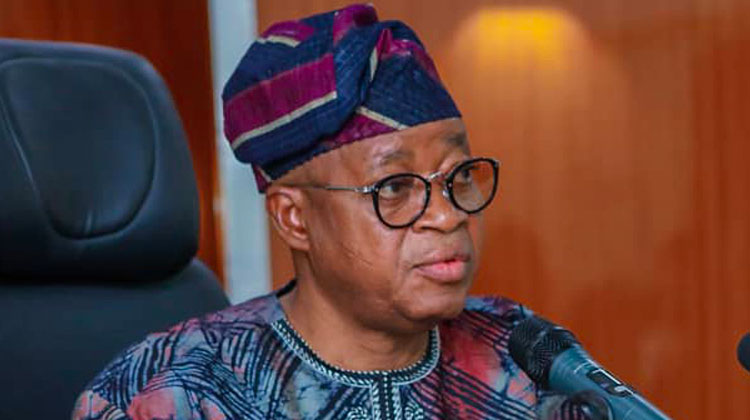The Federal Government said it had advanced the process of developing a national policy on marine and blue economy, which is expected to contribute $2.7bn to the country’s economy.
The Director of the Maritime Safety and Security Department in the Ministry of Marine and Blue Economy, Babatunde Bombata, disclosed this on Tuesday at a stakeholders meeting in Lagos organised by the ministry.
He said that the ministry had commenced the process of developing a national policy on the marine and blue economy, which would play a great role in enhancing the performance of the shipping sub-sector and boosting trade facilitation as well as economic growth.
“The development of the policy would provide a comprehensive framework/blueprint to deliver the expected over $2.7bn contributions of the marine and blue economic sector to the national economy and tackle revenue leakages, through the envisaged streamlined approach to the management of the sector,” Bambata disclosed.
He added that the ministry was determined to work towards the disbursement of the Cabotage Vessel Financing Fund.
The CVFF is an intervention fund established by the Cabotage Act to assist indigenous shipping operators in acquiring new vessels to enhance indigenous capacity building.
According to the director, the fund is a strategic instrument within the legislative framework to stimulate the expansion of domestic shipping capability.
“To ensure the full implementation of the CVFF, the ministry has constituted a committee to develop clear guidelines and mechanisms to facilitate improved access to the fund by stakeholders in the shipping sub-sector.
“This initiative was envisaged to ensure that the fund achieves its goal of providing the required financial support for indigenous shipowners to acquire, construct and repair their vessels,” the director stated.
He claimed that the fund would allow the indigenous shipowners to fund the acquisition of more vessels at a single-digit interest rate, “limiting cabotage trade to Nigeria-owned, crewed and operated ships, would increase the number of ship fleets/tonnage in the country and attract healthy competition with foreign shipping companies in international shipping”.
According to Bambata, the CVFF would also enhance the employment of Nigerians in the maritime sector, and increase locally induced cabotage trade and the movement of passengers and cargo by indigenous shippers.
He also announced that plans for the establishment of the Regional Maritime Development Bank were at an advanced stage.
“The RMDB establishment is ongoing, with Nigeria set to host the headquarters and having the highest share among Maritime Organisation of West and Central Africa member states.
“The bank’s objectives include funding port infrastructure, vessel acquisition, and human capacity development, among others. The RMDB’s establishment was conceived by the MOWCA, which comprises 25 countries,” he said.
He stated that the RMDB’s capital base was expected to be $1bn, with Nigeria having the highest share of 12 per cent among MOWCA member states.
“The bank would be a private-public sector-driven bank, with 51 per cent shareholding for MOWCA states and 49 per cent for institutional investors.
“The bank’s establishment process is ongoing and an office space has been provided for the bank at the Nigerian Maritime Administration and Safety Agency’s Abuja office. Its establishment would increase access to funding for the acquisition, construction and repairs of vessels by indigenous shipowners,” he expounded.
He disclosed that the ministry through NIMASA was collaborating with the Nigerian Meteorological Agency to provide accurate sea weather forecasts, aid sea navigation and provide information for seafarers to support safe navigation and efficient operations in Nigerian waters.
Earlier, the Director General of NIMASA, Dr Dayo Mobereola, announced that he had discussed the necessity of drafting a new Memorandum of Understanding for the Deep Blue Project with the Chief of Naval Staff.
“I have met with the Chief of Naval Staff three times on this particular Deep Blue Sea Project and very soon we are going to have a new memorandum of understanding that will make the project more impactful, more visible and directed to the agenda…,” he noted.
SOURCE: PUNCHNG











